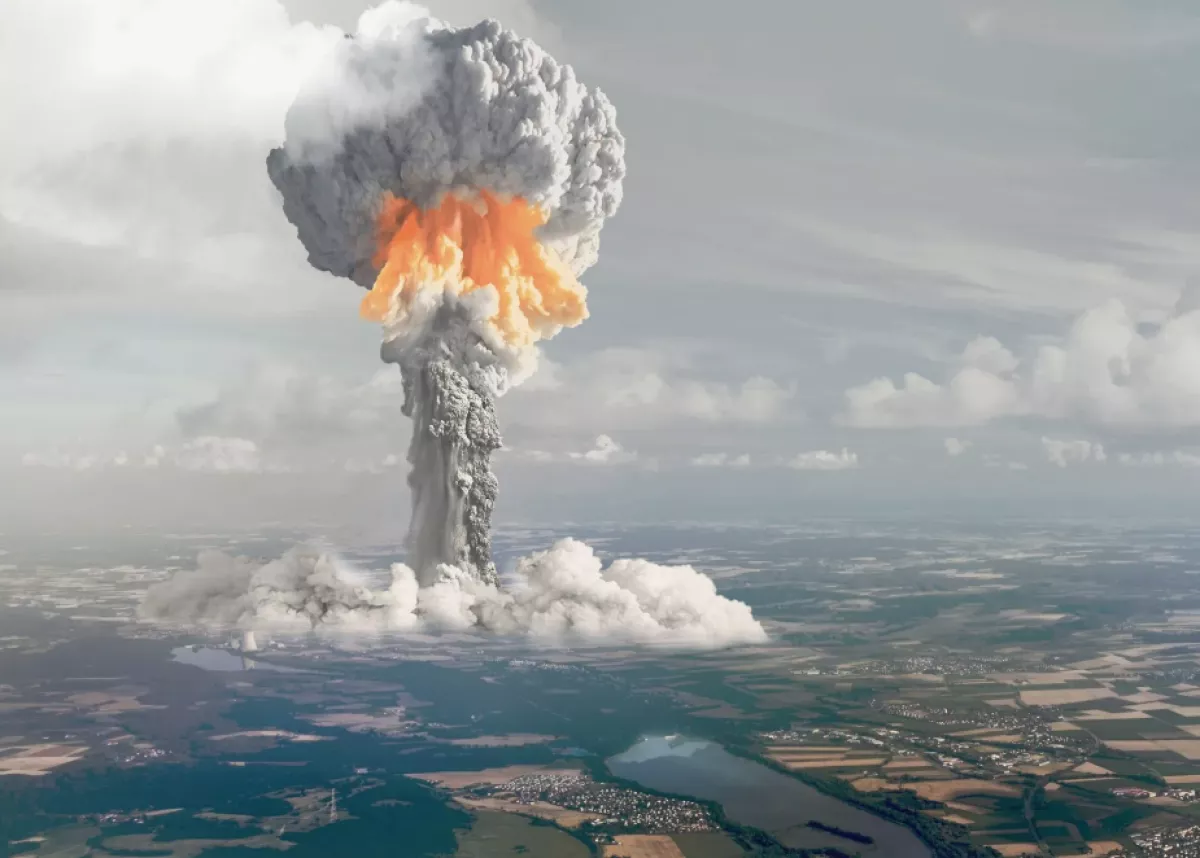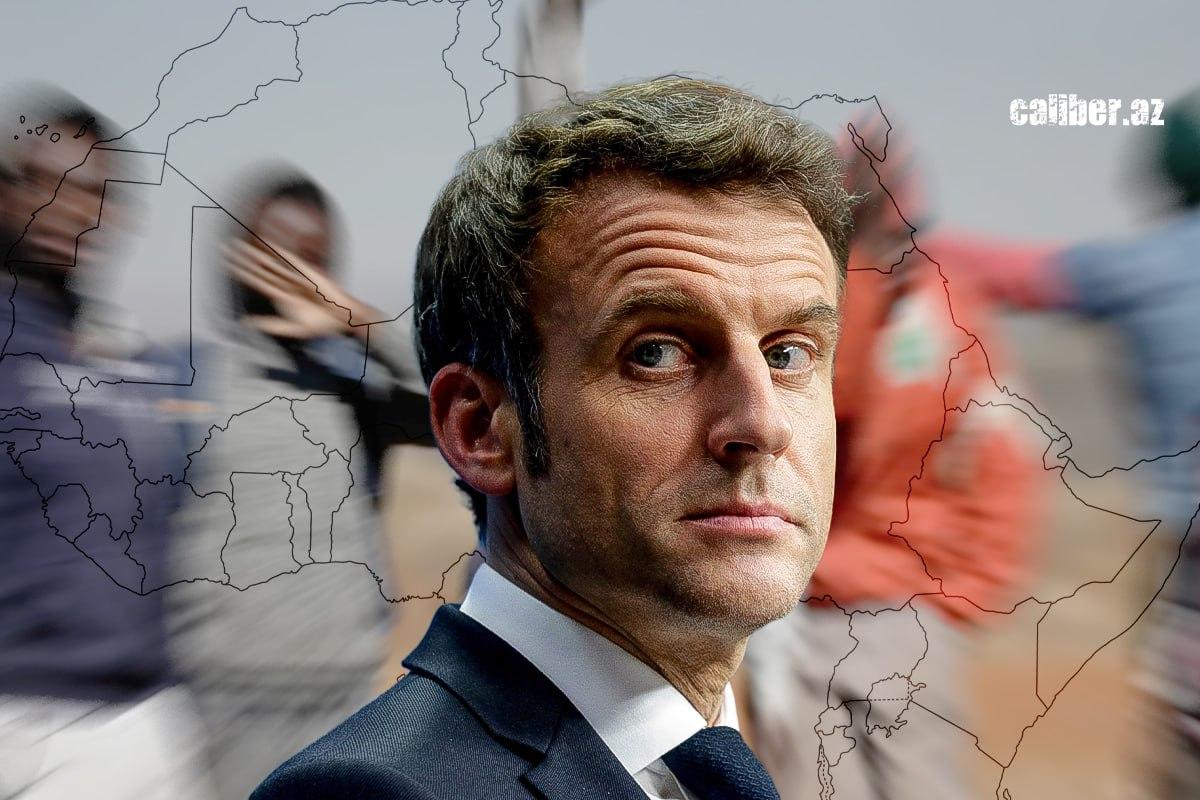Threat of nuclear war amid collapsing world order A stark contrast to COP29’s green goals
The world is once again facing the threat of "clubs." But not the ones from the iconic Soviet film Jack Frost (Morozko)—rather, much more dangerous ones, and what's worse, ones that pose a global risk. These are nuclear "clubs."
Recently, Moscow, in response to reports that Washington had given Ukraine the green light to strike deep into Russia with American missiles, acknowledged the possibility of using nuclear weapons in the event of a critical threat to the sovereignty or territorial integrity of the state (previously, such use was only considered in cases of existential threats to the country). The Russian Air Force, pointing out the "often vague language" in the updated nuclear doctrine, emphasized that this could be part of a broader deterrence strategy.
Soon after, the United States weighed in, stating the possibility of a nuclear exchange in which Washington would retain part of its arsenal for continued deterrence of potential adversaries (through the lens of maintaining its own "global leadership").
Following this, China’s Ministry of Foreign Affairs emphasized that the latest Pentagon statement reflects “outdated US thinking, driven by a desire for hegemony and strategic superiority.” They argued that the US has recently "elevated the role of nuclear weapons in its national security strategy, which has seriously disrupted global strategic balance."

Undoubtedly, the catastrophic potential of implementing such calls becomes all the more apparent against the backdrop of crucial global issues, which have been tirelessly discussed over the past two weeks at the COP29 platform in Baku.
As the saying goes, "feel the difference." Even before the summit, the President of Azerbaijan, Ilham Aliyev, stated that Baku, guided by the slogan " In solidarity for a Green World," "engaging with all stakeholders in a constructive spirit and transparent manner, conducting numerous visits and listening to all to take their concerns into account." Having developed an " ambitious Action Agenda," Baku called for a ceasefire during COP, emphasizing the need for the alignment of a "fair and ambitious New Collective Quantified Goal (NCQG) that meets the needs of the developing, least developed and small island developing states." Following this, the President urged all parties "to engage constructively and in good faith for the sake of humanity."
In his speeches at COP29, President Aliyev, expressing Baku's intention to contribute to finding "a common understanding between developed and developing countries, between the Global South and the Global North," identified one of the main goals as providing substantial financial and technical support to small island nations, particularly those with a colonial past, to protect them from the challenges posed by climate change.
However, as we can see, the countries that consistently position themselves as the leading global players have shown little interest in funding projects essential for the well-being of the planet.
Paris, as detailed by the Turkish channel Haber Global, has, through the Havas group—backed by the unified French foreign and military intelligence service—become an instrument for fueling anti-Azerbaijani hysteria in Europe, the US, and Russia. In Russia, Havas has been supported by allies of Armenian separatist Ruben Vardanyan, while in the European Union, the group's anti-Azerbaijani partner is Rasmussen Global, a Danish company owned by the well-known former NATO Secretary General, Anders Fogh Rasmussen. However, as highlighted in the Haber Global report, despite these efforts, France failed to achieve its objectives due to the effectiveness of Azerbaijan's diplomatic and economic measures.

In any case, let’s reiterate: it is precisely the G7 countries that have entrenched themselves among those who are absolutely unwilling to contribute to the preservation of the planet. Therefore, it is no coincidence that on November 16, the Climate Action Network, an international coalition of environmental defenders, awarded the G7 countries the satirical title of "Fossil of the Day." The award was given in recognition of their efforts to block progress in negotiations during COP29. As specified by the network, which includes around 2,000 NGOs, G7 member states are evading material responsibility for meeting their growing climate financial obligations, while simultaneously failing to fulfil their duty to provide funding to developing countries, a key issue on the COP29 agenda.
In this context, it is worth noting the expectations recorded in the final Declaration of the G20 summit, which concluded just two days ago in Rio de Janeiro. The declaration called for a "successful New Collective Quantified Goal (NCQG) outcome," with a promise to support "the COP29 Presidency and commit to successful negotiations in Baku" and emphasized the importance of mobilizing all sources to increase the amount of allocated funds from billions to trillions of dollars in order to boost climate financing. It is quite clear that the driving forces behind this approach within the G20 were not the G7 member states.
Thus, even those who are "out of the loop" can clearly see how nuclear scare tactics—still largely rhetorical—are at odds with the calls being made at COP29, where people of various nationalities, faiths, and skin colours advocate for the preservation of a world order that is crumbling before our eyes. This raises the question: does everyone understand that in a nuclear war, there will be no winners?
In any case, it is already possible to unequivocally state that Azerbaijan's contribution to creating conditions for concrete actions in the interest of all humanity, including through COP29, will remain on the global agenda for a long, long time.








